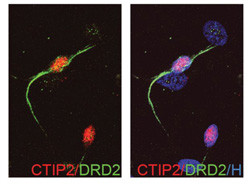Stem cells for neurodegenerative diseases
Neurodegenerative disorders such as Parkinson's disease (PD) and Huntington's disease (HD) are characterised by the progressive loss of specific types of neurons. Their increasing prevalence poses a heavy socioeconomic burden across Europe. Currently available pharmacological treatment is only palliative in nature and of little help to such patients. These degenerative diseases are therefore ideal candidates for replacement stem cell-based therapies where the damaged neurons are substituted by new functional cells. The EU-funded 'European consortium for stem cell therapy for neurodegenerative diseases' (NEUROSTEMCELL)(opens in new window) consortium aimed to develop stem cell therapies for neurodegenerative disorders all the way to the clinic. The project brought together research and clinical expertise in the field to develop validated cells and clinical grade reagents for clinical trials. Key activities of the NEUROSTEMCELL project included the establishment of protocols for generating GABAergic and dopaminergic neuronal cells from stem cells suitable for clinical transplantation. For this purpose they used embryonic and fetal stem cells as well as induced pluripotent stem cells, and tested their in vivo performance following transplantation. The regenerative efficacy of the approach was evaluated in preclinical models of PD and HD using MR and PET imaging techniques. In particular, the stem-cell derived dopaminergic neurons not only survived the transplantation process, but matured into the desired neuronal type and induced significant recovery of motor behaviour. To comply with clinical specifications, partners had to optimise GMP manufacturing conditions and up-scaling protocols for the generation of clinical grade cells. They also investigated all the steps required for translating a research protocol to the clinic from a scientific, clinical, regulatory and ethical point of view. On its completion, the NEUROSTEMCELL study has provided significant knowledge on the mechanisms of stem cell differentiation and specification towards specific neuronal fates. Significant progress has been achieved towards the potential of stem cell therapy for treating neurodegenerative disorders and restoring neuronal function in millions of patients worldwide.







